The Contrasting Legacies Of Roy & Floyd
When James J. Jeffries, heavyweight champion of the world, retired undefeated in 1905, few were in any doubt that they had just seen the greatest heavyweight fighter of all time pass into legend. Lightweight champion Willie Ritchie, light heavyweight champion Jack Root, and heavyweight champions “Gentleman” Jim Corbett and Tommy Burns, all held that opinion, as did Joe Woodman, manager of the great Sam Langford. Indeed Langford, who traveled the length and breadth of the country campaigning to fight anyone, wanted no part of Jeffries in the ring.
But in 1910, “The Boilermaker” had allowed himself to be baited back into the ring by the disgraceful racial demagoguery of Jack London and others, who could not abide a black heavyweight champion in Jack Johnson. In their ensuing bout, Johnson pulverized the former champion with juvenile ease until his manager threw in the towel in the 15th round. Jeffries had prostituted his legacy chasing after a pointless, unachievable vision, and he knew it. “I could never have whipped Johnson at my best,” the former champion said. “I couldn’t have hit him. No, I couldn’t have reached him in a thousand years.”
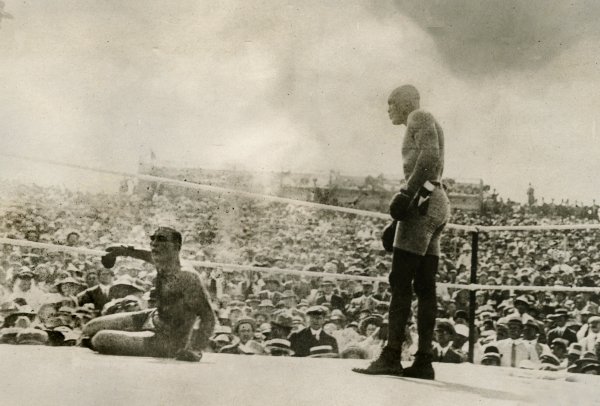
Despite this, in 1971, six decades after Jeffries retired, Ring Magazine founder Nat Fleischer still had him ranked in the top two heavyweights of all-time. But consensus had shifted, and when Fleischer died a year later, it would have been difficult to find advocates for Jeffries’ supremacy; “apologists” would be a more fitting term.
In the last several years we’ve seen a number of high-profile retirements. Wladimir Klitschko, Timothy Bradley, Miguel Cotto, Juan Manuel Marquez, Shane Mosley, Andre Ward, James Toney, Roy Jones Jr., and of course, Floyd Mayweather Jr., have all moved on. These men had come to define, if not dominate, their respective divisions for the last decade or more. Some withdrawals, like Ward’s, seemed premature; others, like Cotto’s, timely; and at least one – Roy’s – far too late. (Perhaps the same should be said of Toney’s; he went 11-6-3 following his marvelous decision victory over Vassily Jirov to land the cruiserweight title in 2003. But his prodigious physical mass, impassable defence and sturdy chin meant you rarely feared for his well-being the way you did Roy’s.)
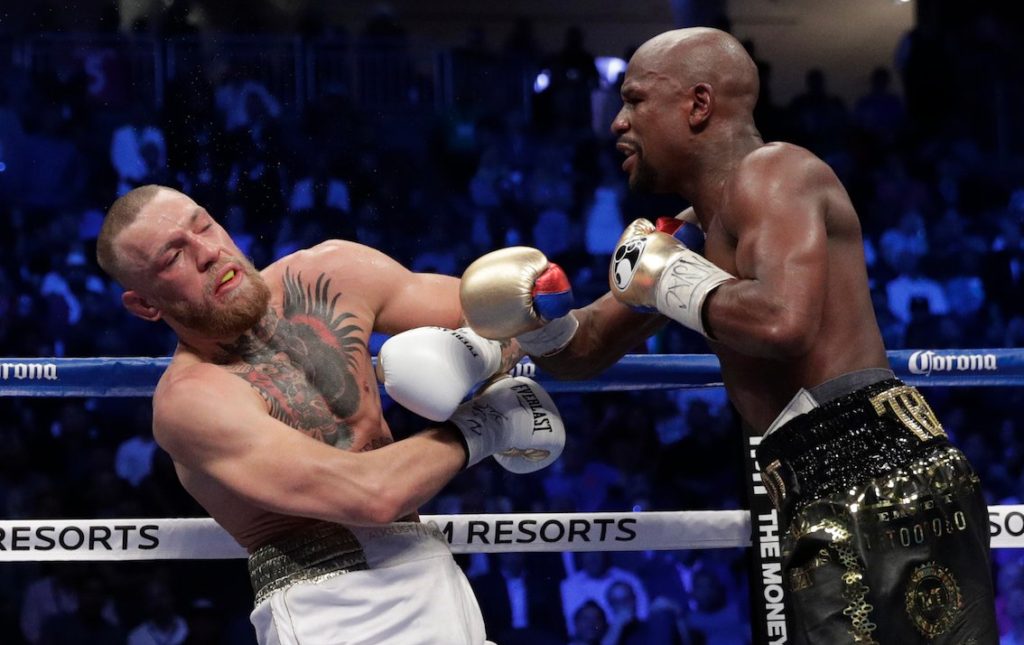
Sometimes legacies take a while to dissipate or accumulate; other times, it happens almost immediately. Two off this list already illustrate, in impasto palpability, the vicissitudes of time and posterity, to such an extent that we seem to be living in a different reality after their respective retirements than we did before. But one has benefited, while the other has suffered, from this sea-change.
In 2015, Roy Jones Jr. cut a pitiable figure. For his first fight in his adopted country of Russia, the once darling of the American sports scene took on former WBO cruiserweight champion Enzo Maccarinelli. I do not mean here to denigrate Maccarinelli; until his 2007 banger with David Haye diverged both men’s fortunes in opposite directions, he was an exciting and competent fighter with excellent punching power. But he would never have made it onto Jones’s radar at the Russian-American’s peak, and eight years and five KO losses later, he was barely a gatekeeper.
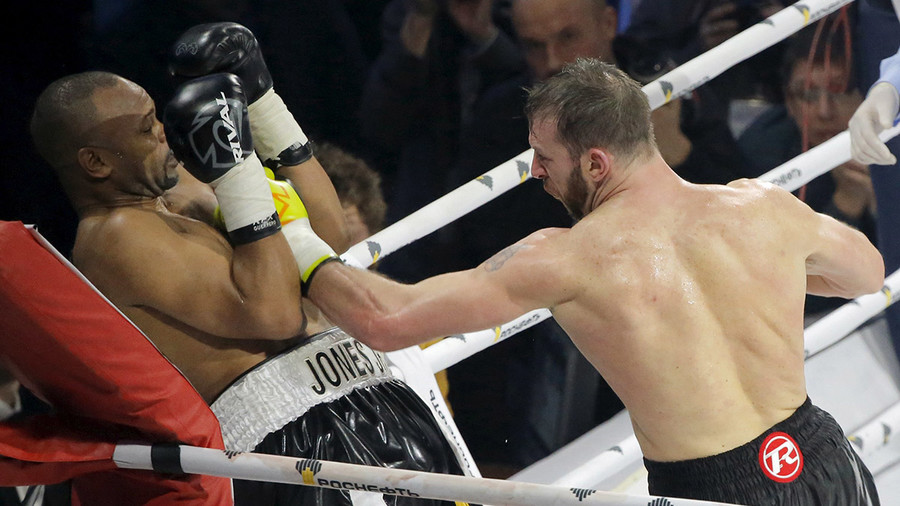
That he knocked Jones out was bad enough, but the manner of the finish – Jones free-falling face first after Maccarinelli had been able to tee-off at will – punctuated what a terrible state “Captain Hook” was now in. The fact Jones did not immediately retire after the match would have been shocking had he not ignored all pleas to call it a day since his brutal knockout loss to Antonio Tarver over a decade before. The once good ship Roy spluttered on for two more years and four inglorious fights before those pleas were finally heeded and harbour was mercifully made.
But as Jones himself once put it, “y’all must have forgot.” As soon as Jones was no longer an active fighter, boxing observers and insiders began to discuss his legacy with the benefit of hindsight for the first time. And a strange thing happened. Pleas became panegyrics and howls of anguish hagiographies; it was as though the years of ignominy had never happened.
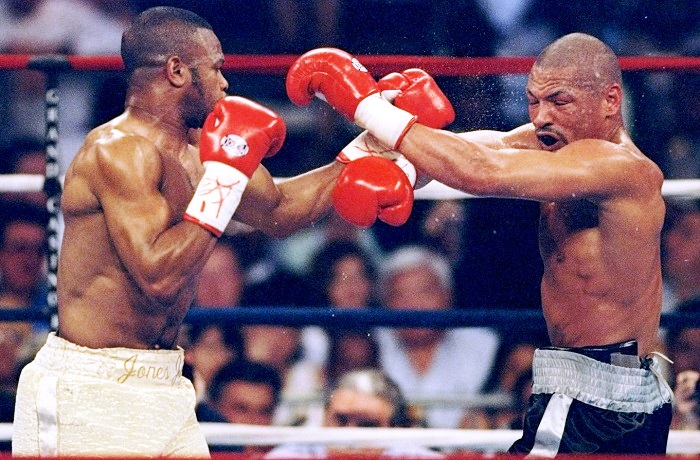
Memory is an odd thing. As terrible as he was ten-plus years after his prime, that’s how good “RJJ” was at his best, something the valedictory highlight reels underlined. This was, after all, the man who shut out (an admittedly aged) Mike “The Body Snatcher” McCallum; who beat a prime Bernard Hopkins single-handedly (literally: Jones went into the fight with a broken right); who bewildered and battered the great James Toney (the last time for a long time Jones would go in as the underdog), who played a professional basketball game the morning of a middleweight title defence (which he won by knockout).
After seeing Jones whip Vinny Pazienza, the writer Budd Schulberg, who had grown up watching Benny Leonard and Lew Tendler at the Garden and could tell you anything you wished to know about Fritzie Zivic, Archie Moore, or Tony Canzoneri, compared Jones’s ability to that of Henry Armstrong and Sugar Ray Robinson. And this was before Jones became the first middleweight since Bob Fitzsimmons to win a heavyweight title and the first man in history to do it from light-middleweight.
Jones’s lack of basic defensive skills and boxing fundamentals meant he couldn’t protect himself once his relativistic speed left him, and time can only tell what damage Jones has done to himself by taking hundreds of additional unnecessary punches. But as of 2018 his legacy appears unassailable. After all, Ray Robinson, Muhammad Ali and Roberto Duran fought on too long, and we don’t hold it against them. The only mark against Jones, and what keeps him out of the elite category of those men, is the lack of competition he had in his prime, something Schulberg and others noted then. He was “as far ahead of his field as Seabiscuit,” although the polymathic Jones once rapped: “They got the nerve to say I ain’t fight nobody – I just make them look like nobody.” Consider the careers Toney and Hopkins had after Jones made them look average.
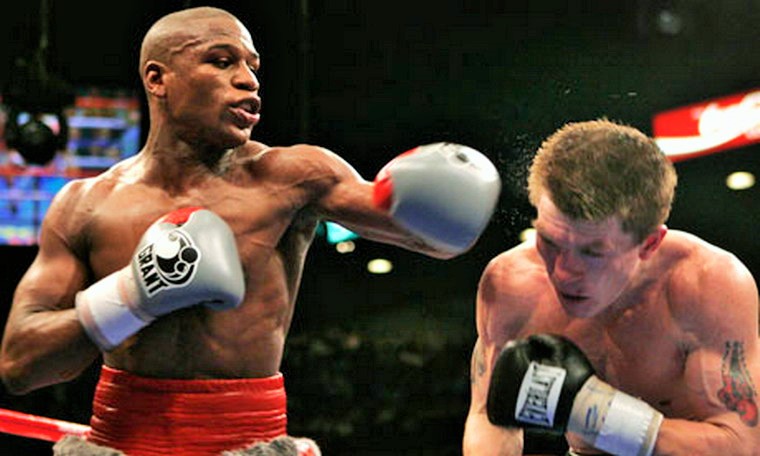
By contrast, up until his absurd fiasco with Conor McGregor, Floyd Mayweather Jr’s stock as a historically significant fighter could not have been higher. Although very few subscribed to his boast of being “The Best Ever,” he seemed to have cemented his status as the greatest prizefighter of his generation by handily conquering Manny Pacquiao two years earlier, within months of Jones’s Waterloo against Maccarinelli. He’d beaten other future Hall of Famers, all-time greats, and even legends, often with relative ease; witness his victories over Juan Manuel Marquez, Canelo Alvarez, Arturo Gatti, Diego Corrales and Zab Judah to see the man at the peak of his uncanny powers. His conquests read like a who’s who of the divisions between light and middle for the last ten to fifteen years: Oscar De La Hoya, Jose Luis Castillo, Ricky Hatton, Shane Mosley. Best ever? No. But top twenty? Maybe.

Like Jeffries in 1905 and Rocky Marciano in 1956, Mayweather also retired undefeated. This meant far more to him than it had to them. Along with having defeated more title-holders in history, it’s the reason he gave for ranking himself above Leonard, Robinson, Duran and anyone else.
But pinning his legacy to that mast was a mistake. Unlike Jones’s, that estate seems to have atrophied since the day of his retirement. Firstly, lengthy win streaks are hardly unique in boxing. For example, Nino Benvenuti won his first 65 fights. Carlos Monzon went 80 straight without a defeat while Julio Cesar Chavez went 87-0. Willie Pep was 62-0 by the time of his first loss and then went the next 73 fights unbeaten before losing to the great Sandy Saddler. Going into his rubber match with Saddler, Pep was 152-2-1 after ten years in the ring. If Floyd had competed 155 times between 1996 and 2006, do you think his precious “0” would still be there?
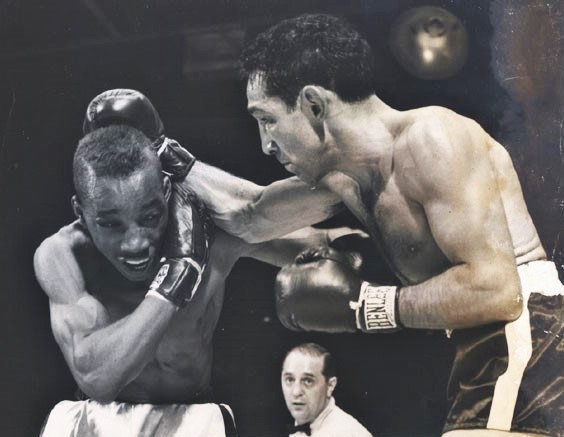
When you pull at the threads of Mayweather’s record on its own terms, certain unravelings occur. The simple fact is that after “Money” took over from De La Hoya as the box office draw, the once “Pretty Boy” Floyd never really risked anything again. (Which is nothing to hold against him personally: why would you take risks, in a sport as dangerous as boxing, when you don’t have to?) Hatton was too small and tailor-made for a cultured counter-puncher like Floyd. Marquez had to move up to a catchweight Mayweather still couldn’t make, as he happily forfeited part of his purse to ensure Marquez had no chance. Mosley was too far from his prime and his lightweight best to really trouble his rival. In retrospect, the flat-footed Canelo was always going to be bamboozled by a matador of Mayweather’s class.
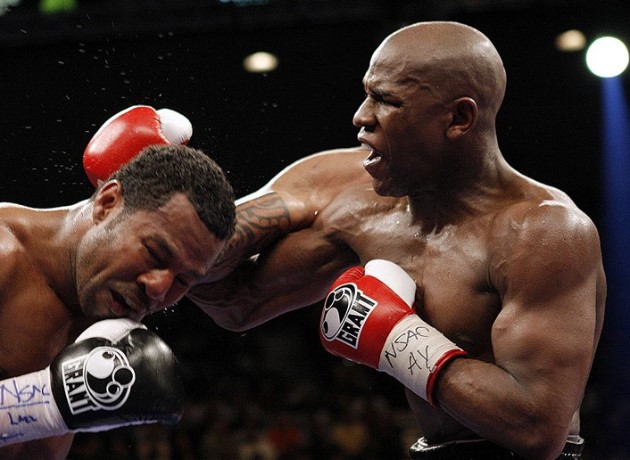
As for Pacquaio… well. For all Mayweather’s vaunted ability to navigate weight divisions, Pacquaio began at flyweight – six divisions below where Mayweather debuted – and had to load his pockets with stones to do so. That the Filipino once beat the holy hell out of one-time lineal middleweight champion Miguel Cotto – who Mayweather had no end of trouble with – is a division-hopping achievement worthy of Langford, Armstrong, and Jones. And if a boxer moving up and down in weight isn’t your thing, the consummate, vicious manner in which Pacquiao also defeated De La Hoya, Hatton, Mosley, and Antonio Margarito (whom Mayweather wanted no part of) means he’ll rank ultimately higher on all-time pound-for-pound lists than the Grand Rapids fighter, who must have thought he’d settled the matter in his favour in 2015.
If he wasn’t the best of his time, how can Mayweather claim to be the best of all time? As Max Kellerman has pointed out, when Roy Jones Jr was at his zenith in the late 90s, nobody put Floyd Mayweather at the top of their pound-for-pound lists. In 2001, when Mayweather delivered his career-best performance against Corrales, he was universally considered a worthy but distant second to Roy. Simply by retiring, Jones appears to have reasserted that gap after years of relative obscurity.
Posterity is a capricious mistress. But almost a decade since Mayweather’s valediction, she seems to be agreeing with R.A. the Rugged Man, who personally told Floyd he was special, but no more so than Aaron Pryor, Pernell Whitaker, or Emile Griffith. Meanwhile, I suspect that the further we get from Roy, the more superhuman he’ll look. Perhaps not in the league of Ray Robinson, but like Ray, he will always be a truly unique and epochal fighter, the type whose greatness imposes itself from the first time you watch him and ever after. — Laurence Thompson

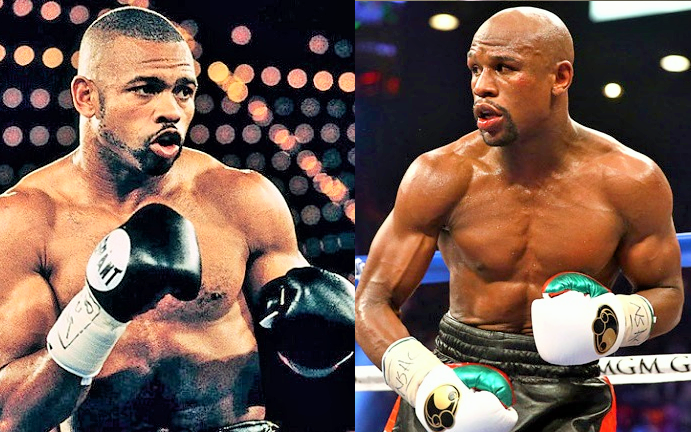

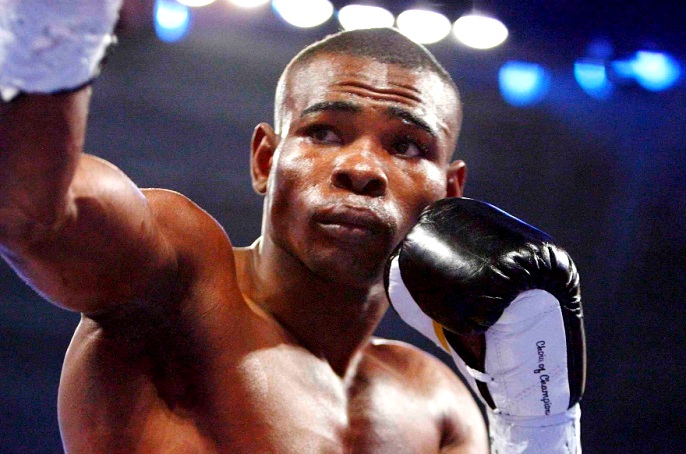
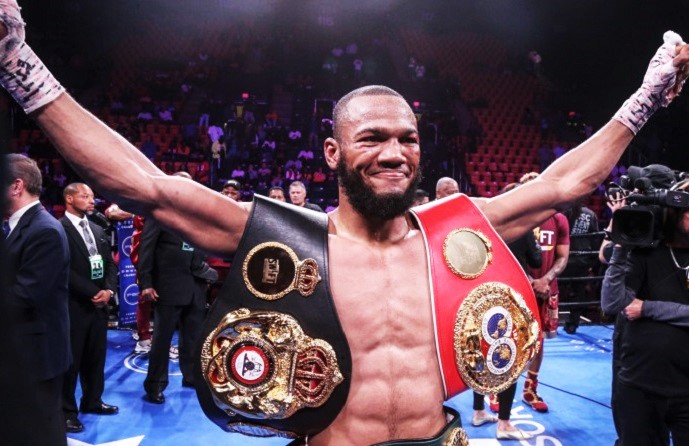
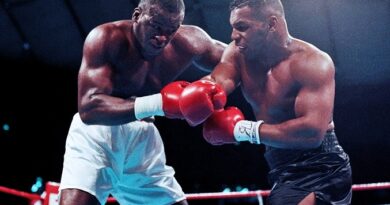
“The simple fact is that after “Money” took over from De La Hoya as the box office draw, the once “Pretty Boy” Floyd never really risked anything again”
Very well written article, but I’m curious as to who the author thinks Floyd could have fought post DLH who would have been a risk?
Also, I don’t see how you can try to give Manny more credit for beating Hatton and DLH just because he stopped them.
Floyd beat an undefeated Hatton, mentally or physically he was never the same after that.
Floyd also beat DLH at 154, DLH was a year older and essentially dead on his feet when he drained himself to 147 against Pacquiao. He was essentially a dehydrated punching bag.
Floyd’s wins over the aforementioned will always be more impressive for those reasons.
Floyd said it best, he’ll never get the credit he deserves. You say he ducked Margarito but its proven he’s nothing but a cheat. Floyd called out Mosley years before they fought but Shane saw that fight as high risk and low reward. He only wanted to fight when Floyd became a PPV attraction. The writer fails to mention that most of the fighters he says Floyd fought in their primes Pacquiao fought after Floyd already beat them, but you give credit to Manny. This article is laughable at best.
The fact that you have to write an article…to remind people Floyd isn’t the Best Ever shows where he ranks in your mind. You didn’t write an article calling Paquiao or Hopkins the Best of their generation.
You felt you had to address the elephant in the room: that Floyd is perceived that way. You can go over the data and tear apart his opponents but what you can’t do is look at RJJ’s best moments and compare them to Floyd’s entire career.
Maybe the ability to walk away is a skill in and of itself. But the ignominy of russia isn’t just one but one of a dozen exhibit A’s in the chain holding down RJJ’s ascent into the elite league. RJJ was disqualified which says a lot about him as a fighter.
You have a heavy task ahead of you: to convince the public that over 10 years didn’t exist but the ten before it did. In the end you become the same thing you accuse Floyd of: a narrative spinner in the annals of history. Roy was good. Floyd was much better. There’s no crime in admitting that.
It took nearly 50 years to remove Rocky Marciano from his undeserved perch in boxing. So I guess you’re right. Lies can always be shaped with time.
The Fight City. You guys do an unbelievable job of writing about the history of boxing. I love how you guys know the entire history of the sport and not just the past 20 or 30 years. Keep up the good work
Thanks for reading and for the kind words! Feel free to let others know about all the goodness you have found on The Fight City!
Mayweather is a marketing genius. He has managed to keep all boxing lovers discussing about him being the best ever by simply making that provocative statement. In my opinion, he was a brilliant boxer and very smart conducting his career. Considering him an ATG depends on how you calibrate that ambiguous category. The real thing I miss in his profile is some amount of epic. Ali got it. SRL got it. Roberto Durán, Willy Pep or SRR too, for different reasons. But epic is another thing difficult to define. And epic, in modern boxing, is becoming a less frequent value.
Very said, very unfortunate. Mayweather unlike Ali, Paq, SRR, SRL hell even Duran…Mayweather didn’t give two flying f-words about the cognescenti of boxing.
He catered more to his haters and let the Larry Merchants stew in their hatred. He’s a curious figure of black defiance. Not politically astute but nobody’s fool and nobody’s bootlicker.
I think the next five years we’ll see boxing media spend sufficient energy trying to downplay Mayweather’s legacy while dusting off others to make them seem brighter.
The problem is no fan, no matter how stupid could place Paq higher than Floyd as long as tape of the fight exists. So your task is simple. Get rid of youtube and the videos and then you can spin the tale of how irrelevant Floyd was to boxing.
A name mentioned early in the article – Andre Ward – got me thinking about how a perfect boxing career should look. He did his bit; probably saved his money; retired before it was too late; and now is having a successful career as a boxing commentator. I can’t think of any other boxer who has done better.
Good article. First, Roy was the best that I’ve ever seen in my lifetime. I’m a little too young too remember prime Sugar Ray Leonard, Hearns, and Hagler, and Duran. I started watching around the Michael Nunn, Meldrick Taylor, Sweet Pea, JCC , Toney era. I was sad to see Roy stay around too long, but most of them do. Still , if we’re going stretches of prime, there was no one more dominant or dynamic. As the article stated, he had great wins over Toney, B-Hop, and an aging Mike McCallum, not to mention really good fighters like Virgil Hill, Montell Griffin, Antonio Tarver, Reggie Johnson, and Derrick Harmon. He topped it out with a victory of John Ruiz. . He was 35 when he moved back down and it was just too much , especially against a quality fighter like Antonio Tarver. I just wished he would’ve retired. Still, he has the best combination of athleticism, ring iq, and skill that I’ve ever seen.
I’m not much of a “Money Mayweather” guy, but “Pretty Boy” Floyd was as good as a small fighter as I’ve seen. I think when we look as Mayweather’s legacy, we ignore the first part of his career. G. Hernandez, A. Manfredy, J. Chavez, D. Corales, A. Gatti, Castillo. With the exception of Castillo, these guys were thoroughly dominated. This is my only problem with the Pac argument. While I was a huge fan of Pacman and think he was the most exciting fighter since Roy Jones, barring a knockout , there was no way that he was going to beat Mayweather. It amazes me that people criticize Mayweather for fighting opponents past their primes, but give Pacman full credit, when he fought Mosley, Hatton, and Oscar AFTER Mayweather even though he himself was younger than Mayweather. No one mentions the weight that he fought Oscar and Cotto at (147 and 145 , respectively) or the fact that Floyd fought them at the full 154. Yes, Floyd weighed more than Marquez, but he was coming off a two year layoff and toyed with him, while Pacman went life and death with him each time (one fight that Pacman won was literally the Robbery of the Year). I tend to like more aggression, so Floyd at 147 wasn’t exactly my favorite cup of tea, but the fact remains that against the other great fighters of the era (Pacman, Canelo, Marquez), he probably lost 7 rounds max. I think when we’re looking at Floyd’s legacy, we have to start separating ourselves from our personal feelings towards him and look objectively and appreciate the skill level.
I have never understood that Max Kellerman argument that in the 90s and early 2000s no one would have place Floyd over Roy. My response to that is of course they wouldn’t. Roy had been putting in work since the late 80s while Floyd in comparison had just gotten there. That’s like people putting Andre Ward over Mayweather when he was reigning. That doesn’t make Floyd less than Roy. Roy came around first.
I disagree with the conclusion of the article about Floyd now being viewed no differently than a Pryor, Whitaker or Griffith. Floyd all these years later is still the fighter people talk about. He seems to be ranked even higher than he was while active. Ring Magazine did a greatest fighter’s list and Floyd was 6th (ranked over Roy).
Floyd’s legacy is what it is. If I were to compare it to Roy’s, I would rank Floyd’s higher just by the fact that while Floyd didn’t look at physically dominate prime vs prime, Floyd’s dominance lasted much longer. Even when his physical abilities declined, Floyd was still a dominate fighter while Roy fell completely off the map. Roy wasn’t so much dominate over Floyd prime for prime that it overrides that aspect.